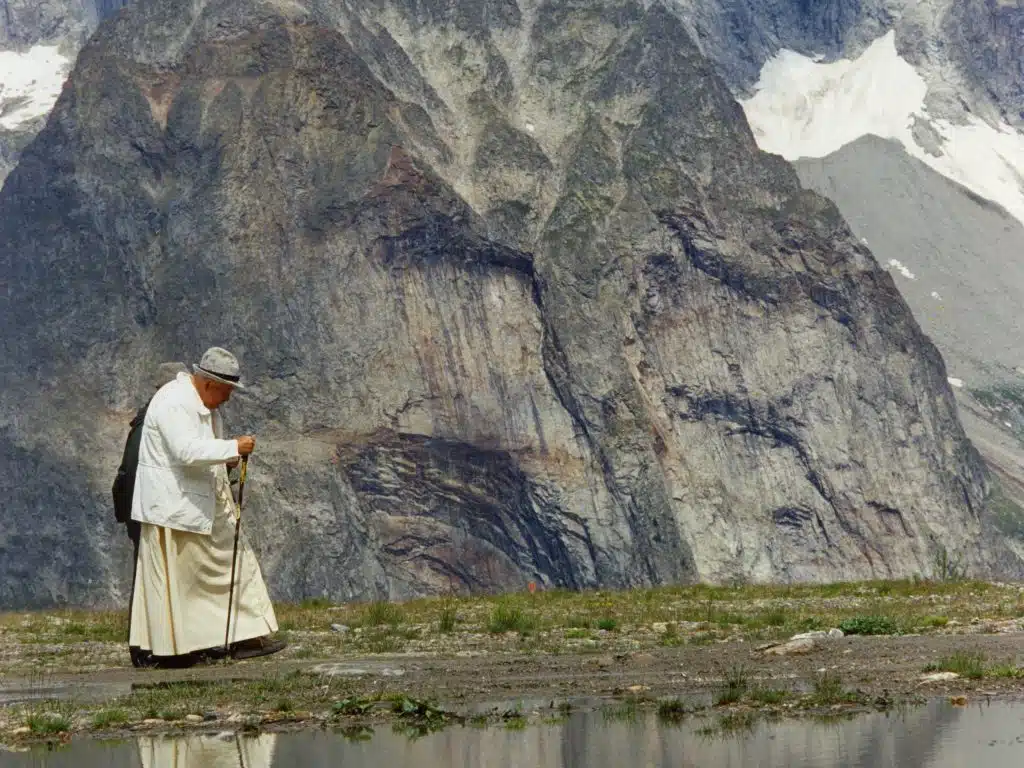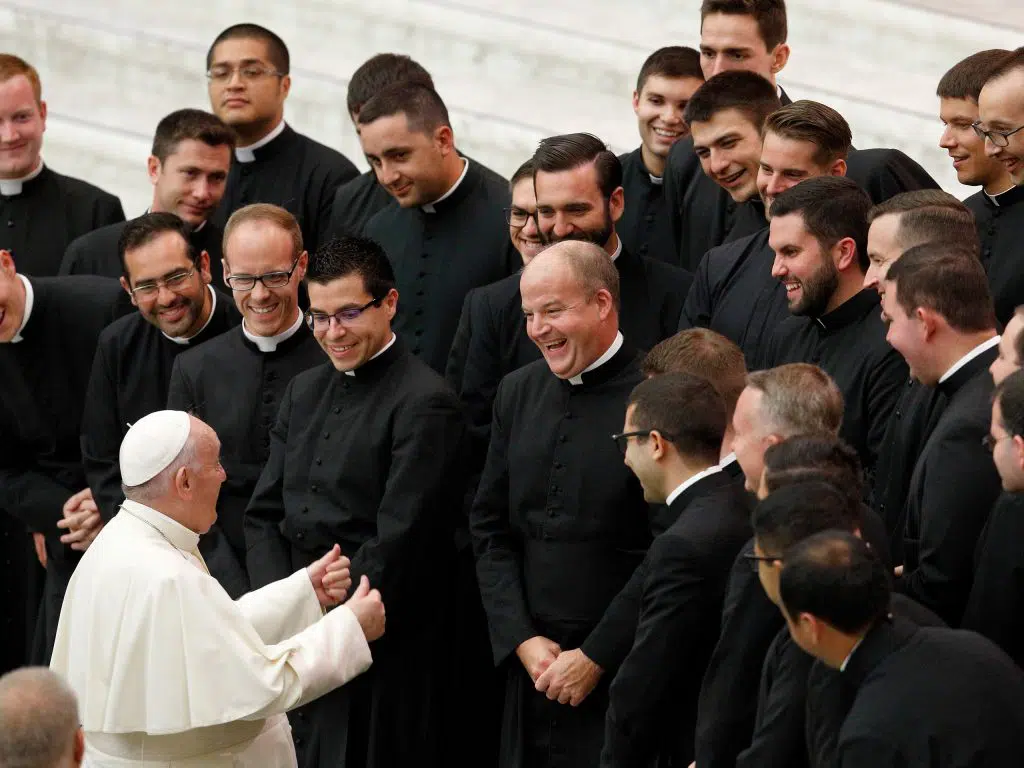Q: I am surprised by the number of people who regularly leave church immediately after receiving the Eucharist. In the diary of St. Faustina, Jesus says how sad He is that people treat Him as a dead object and busy themselves with other things.
It is distracting and disruptive of my own personal prayer when I see these people head directly to the exits. This is the closest and most holy time we have to spend with the Lord. Am I being overly sensitive about the actions of others? (Louisville, Ky.)
A: St. Philip Neri, the saintly parish priest in 16th-century Italy, once noticed that a member of his congregation would regularly leave Mass immediately after receiving Communion, and he decided that the man needed to be taught a lesson.
So the following Sunday, St. Neri assigned two Mass servers to accompany the man with lighted candles out of the church and down the street. The man, of course, returned demanding an explanation, which gave St. Neri a chance to explain the importance of taking time to thank God for the gift of the Eucharist.
It bothers me, as it does you, to see people rush out to their cars right after taking the host — although I’ve never had the courage to use the same pedagogical technique as St. Philip Neri.
Your question makes me think of what Elizabeth said at Mary’s visitation; in shocked surprise, Elizabeth asked her cousin, “And how does this happen to me, that the mother of my Lord should come to me?” Even more, each of us should be struck with awe that God Himself in the person of Jesus has deemed us worthy of a visit.
In “Inaestimabile Donum,” his 1980 instruction on the Eucharist, Pope John Paul II reminded us that we should not “omit to make a proper thanksgiving after Communion” — perhaps with some moments of silence “or also after the celebration, if possible, by staying behind to pray for a suitable time.”
Q: I’m confused about something and would be grateful for your help. Does prayer change God’s mind? Can someone be moved to the head of the line if we pray hard enough? (Cuba, Mo.)
A: To answer this question, we first need to admit our limitations. I cannot pretend to know the mind of God. No one can, so long as we are still on this side of heaven.
But what I do know is that Jesus told us to pray. He said that whatever we ask for in prayer will be granted (Mk 11:24; Jn 15:7), and He even said that we should pray for those who persecute us (Mt 5:44).
Throughout the Scriptures, which we believe to be inspired by God, we are instructed to pray for the sick (Jas 5:14), for leaders of government (1 Tm 2:2), for ministers of the Gospel (Eph 6:19).
I do not think that prayer changes God’s mind. In His infinite wisdom and foreknowledge, God already knows what’s going to happen.
But that divine plan, I believe, takes into account the fact that we will pray for certain things and is guided in advance by the prayers that we will offer. So people, in my view, don’t “jump the line” because we pray for them; they are already standing at the front because God knew from all eternity that we would do exactly that.
As I said, I don’t purport to know exactly how it all works, and I look forward to grasping it better when, hopefully, I arrive in God’s presence. Meanwhile I will continue to pray for others, especially those in particular need, because Jesus told me to — and I trust that they will continue to pray for me.
Questions may be sent to Father Kenneth Doyle at [email protected] and 30 Columbia Circle Dr., Albany, New York 12203.
Questions may be sent to Fr. Kenneth Doyle at [email protected] and 30 Columbia Circle Dr., Albany, N.Y. 12203.


Christ commands us to love